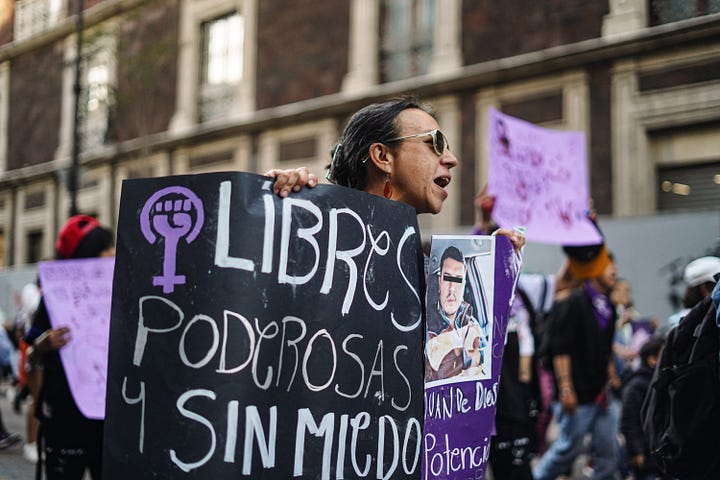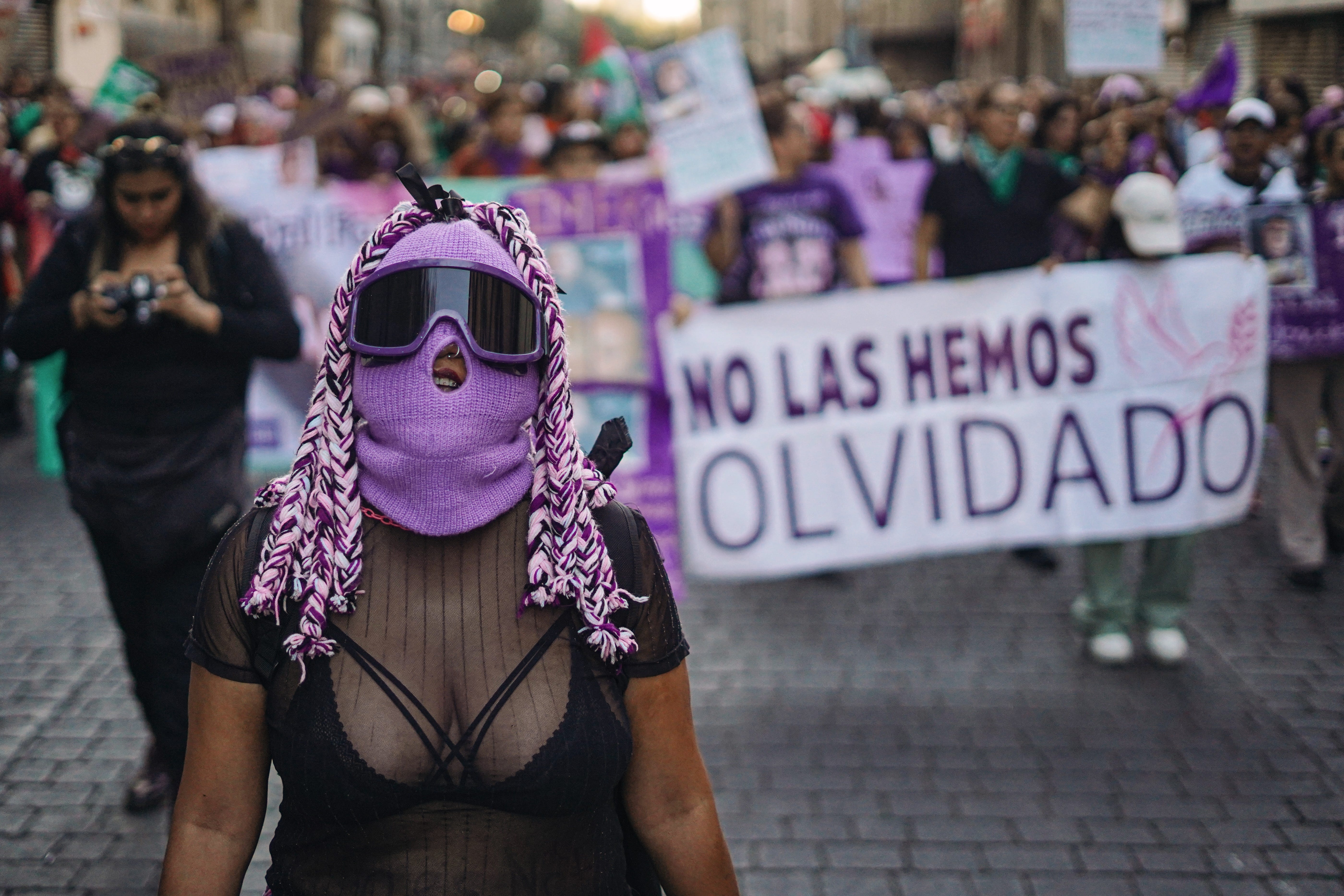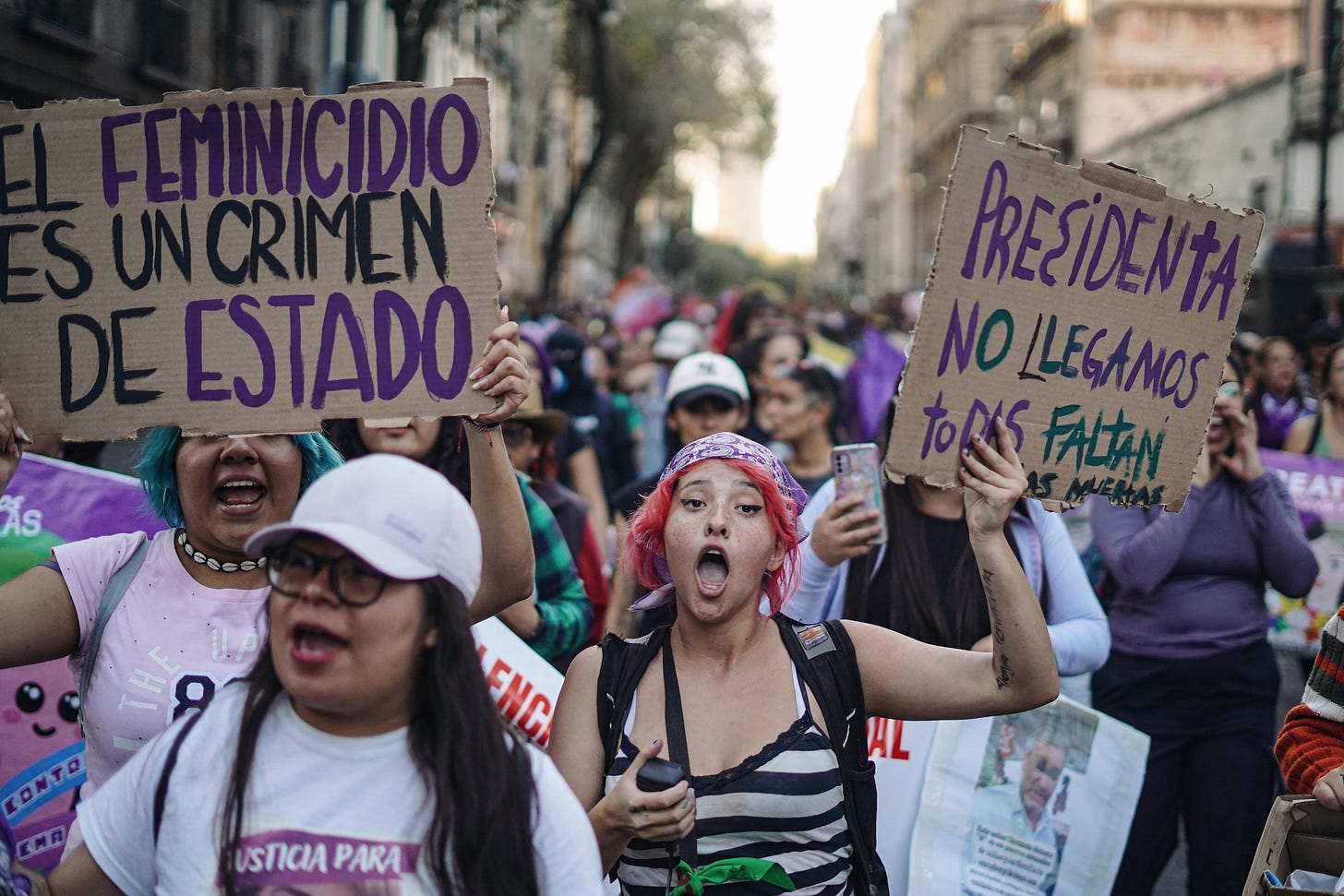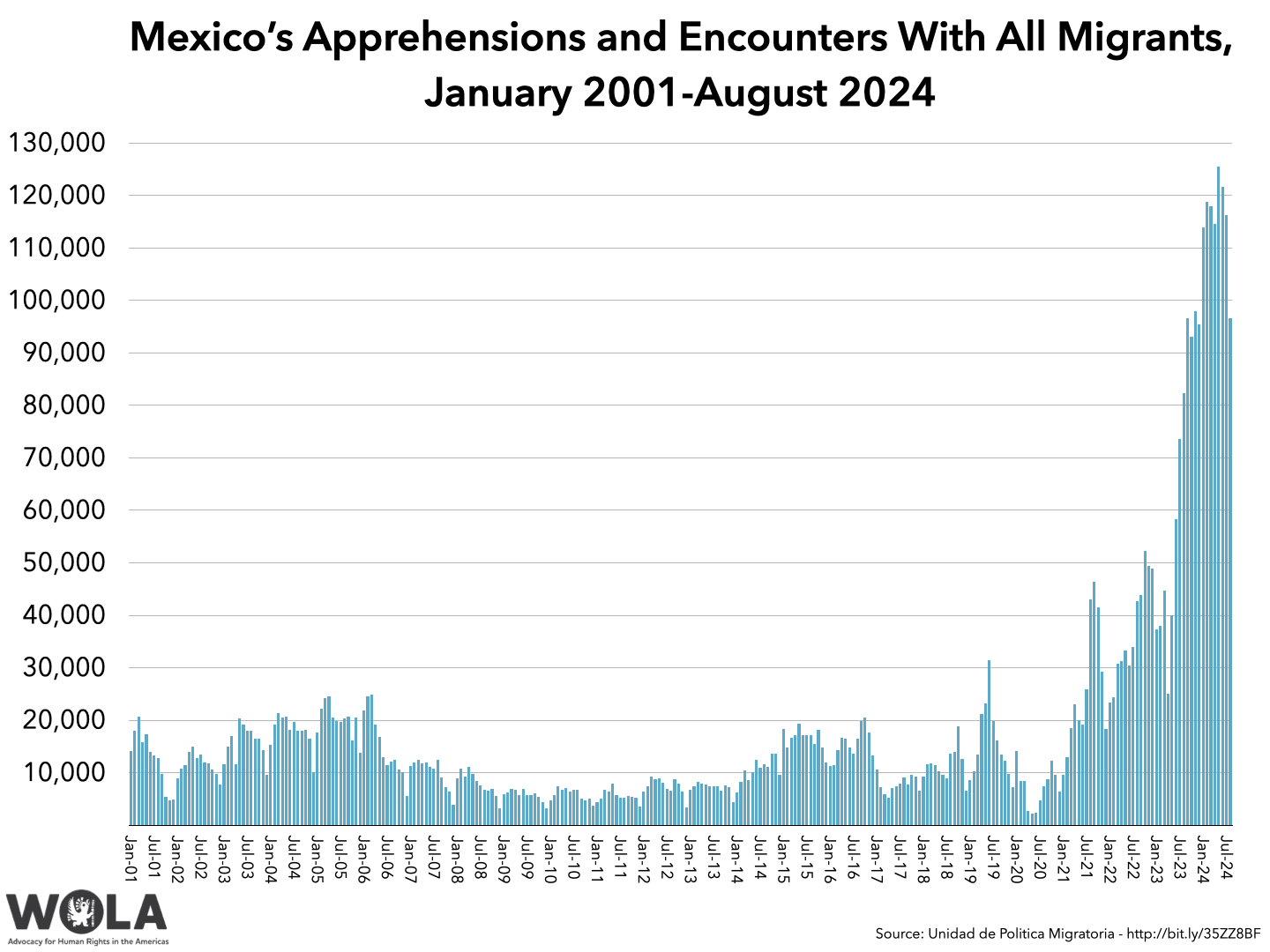Will Mexico's new president confront violence against women in a way that AMLO didn't?
Violence against women across nearly all of Latin America is on the rise. Images and data from the N25 March in Mexico. Sheinbaum has promised change, but will she follow through?
On November 25, women across the Latin American continent commemorated the International Day of Non-Violence against Women, established 40 years ago after the murder of three women in the Dominican Republic.
And this time, PWS was in the capital of Mexico where around 400 women of different political organizations, ages, and ethnicities came out to demand that newly elected president Claudia Sheinbaum enact policies and measures that shield them from the violence they are exposed to daily.
According to statistics from the National Public Security System (SESNSP), between 9 and 10 women are murdered every day in Mexico.
Surpassed in Latin America only by Brazil, Mexico had 852 murders of women in 2023. Third place is occupied by Honduras, followed by Argentina and then Colombia, according to data from the United Nations.
Honduras, by far, has the highest femicide rate among women per 100,000, at 7.8.
In Latin America a “femicide” is defined as the murder of a woman where gender was a component of the motive of the killer— homicide rates in general among women are even higher.
In Mexico, seven out of 10 women have been victims of gender-based violence, ranging from economic, sexual, physical, or psychological, according to the National Institute of Statistics and Geography (Inegi).
The highest rates of violence, ranked by department, occur in the State of Mexico (78.7%) the country's capital (76.2%), and the neighboring state of Querétaro (75.2%.) Despite the shockingly high percentages, Mexican authorities believe that thousands of more cases go unreported either due to fear for personal safety or a lack of faith in Mexican law enforcement.
Mexico has historically suffered from a growing phenomenon of forced disappearances. In 2023 the López Obrador government indicated that 25% of the total number of missing persons are women and girls, a figure that has increased in recent years. According to the Mexican Institute for Human Rights and Democracy (IMDHD), between 2015 and 2021 the number of missing girls and women across the country tripled.


Mexico is also the country with the second highest number of murders of trans people, not only in Latin America but in the world. From January to September 2023, according to the Observatory of murdered trans people, there were 33 trans femicides in Mexico.
AMLO often criticized women-led protest movements, and his comments against women more broadly were often criticized by activists as “machista”, the term for male chauvinism in Spanish.
As marches occurred in the streets of Mexico on November 25, Claudia Sheinbaum released a new strategy meant to address violence against women— including proposed Constitutional changes aimed at equal pay and parity for women in public office.
But these proposed reforms come amidst cuts by the Sheinbaum administration in spending for gender policy programs in 2025, including the Program to Support Shelters for Battered Women, which protects and offers services for women suffering from domestic violence.
Time will tell whether Sheinbaum will seriously address the violence epidemic against women in Mexico, but in a country where an average of 10 women are murdered every day, more than 3,000 a year, reform could not be more urgent.
The Big Headlines in LATAM
Colombian authorities, in an international operation with dozens of other countries, seized 225 tons of cocaine in 6 weeks, a global record for any single anti-narcotics operation.
One of the largest seizures was taken from a “narco submarine” traveling on a new drug trafficking route to Australia.
In the six-week Operation Orion, law enforcement agencies and other organizations from 62 countries halted six semi-submersible vessels stuffed with cocaine and confiscated 1,400 tons of drugs in total, including more than 1,000 tons of marijuana.
After weeks of incendiary rhetoric between President of Mexico Claudia Sheinbaum and US President-elect Donald Trump over tariffs, migration, and the drug trade, the two leaders announced an “agreement” on border protocols and drug trafficking.
Trump, falsely, claimed that Mexico has already taken more actions to crack down on migration, while Sheinbaum, falsely, claimed that Mexico will not be an enforcer of US border policy.
They already are, and have been for years. According to data from Mexican and US governments, Mexico has long detained, harassed, and deported migrants headed to the US border. In 2024, Mexican authorities detained more migrants than US border patrol.
In case you missed it, however, this public softening of tone falls in pretty well with our predictions of how Trump and Sheinbaum will deal with another during the coming Trump administration.
Spanish Word of the Week
Alborada
Alborada means “dawn”, or in some contexts, “a greeting of the dawn” or “a military operation undertaken at dawn”, but in Medellin, Colombia, it has a much more specific meaning.
Every year at midnight on December 1st, 1000’s of residents, especially in working-class neighborhoods, shoot fireworks into the night sky to mark the official beginning of the Christmas season— showering the city in thunderous explosions and brilliant light.
It has become a tradition for many families to stay up to view the impromptu display. But the informal holiday has a very curious origin in conflict, narco-trafficking, and the local gangs who populate the city.
The festival was born when an infamous paramilitary leader with deep ties to narco-traffickers named Diego Fernando Bejarano Murillo, alias “Don Berna”, decided to demobilize his substantial force of fighters and enforcers in the last week of November 2005, as part of a deal with the government.
On December 1 2005, his “bloque” of the infamous United Self-Defense Forces of Colombia (AUC,) demobilized in Medellín. To celebrate, Don Berna ordered all his enforcers, and all the small gangs in Medellin, to shoot fireworks into the air.
Coincidentally, or perhaps not, December 1 is also Pablo Escobar’s birthday.
The tradition is considered highly controversial in some elite circles of Medellin society. But there isn’t really anything the city can do about it.
La Alborada siga: the Alborada will continue
Hasta pronto, piratas!











The Mexican President is a communist. Feminism is a tool to bring in communism, so there is no need. Feminism is not about protecting women it is about destroying the system to bring in communism.